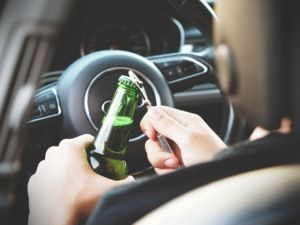News
Vast majority of drink driving cases involve men
This article is more than 3 years old.
Men aged 25 to 50 are the most frequent culprits

Men in Denmark are more likely to found behind the wheel and under the influence
A new analysis by Danmarks Statistik has revealed that those charged with drink driving are overwhelmingly young men.
In the period from 2007 to 2021, 91 percent of individuals charged with drink driving were men. 25 percent were men between 17 and 25 years old.
For women, drink driving was most common among those aged 17 to 25, as well as those in their 40s.
More drink driving, less accidents
A total of 224,600 drink driving charges were filed during the 15-year period from 2007 to 2021. In general, the number of annual charges has steadily increased, reaching a peak in 2021 with 17,000 charges filed over the course of the year.
At the same time, the number of alcohol-related traffic accidents over the period – as well as the proportion of accidents resulting in personal injury – has decreased.
Drink driving most common in summer
According to the analysis, drink driving is especially common during the summer. July is the month in which most people have been charged with drink driving during the past 15 years.
From 2007 to 2021, an average of 1,500 charges were filed every July, compared to around 1,100 per month in January and February.
Driving under influence of narcotics also increasing
The number of charges for driving under the influence of narcotics has also been increasing – and at a rapid pace.
Over the entire period of study, the number of charges for driving under the influence of narcotics increased from only 100 charges in 2007 to more than 10,000 charges in 2021.










































